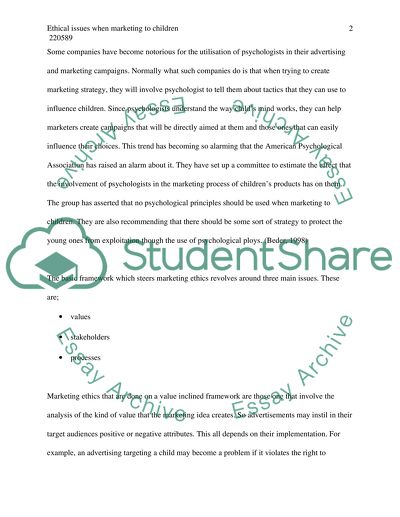Cite this document
(“Ethical Issues when Marketing with Children Essay”, n.d.)
Retrieved from https://studentshare.org/miscellaneous/1523607-ethical-issues-when-marketing-with-children
Retrieved from https://studentshare.org/miscellaneous/1523607-ethical-issues-when-marketing-with-children
(Ethical Issues When Marketing With Children Essay)
https://studentshare.org/miscellaneous/1523607-ethical-issues-when-marketing-with-children.
https://studentshare.org/miscellaneous/1523607-ethical-issues-when-marketing-with-children.
“Ethical Issues When Marketing With Children Essay”, n.d. https://studentshare.org/miscellaneous/1523607-ethical-issues-when-marketing-with-children.


